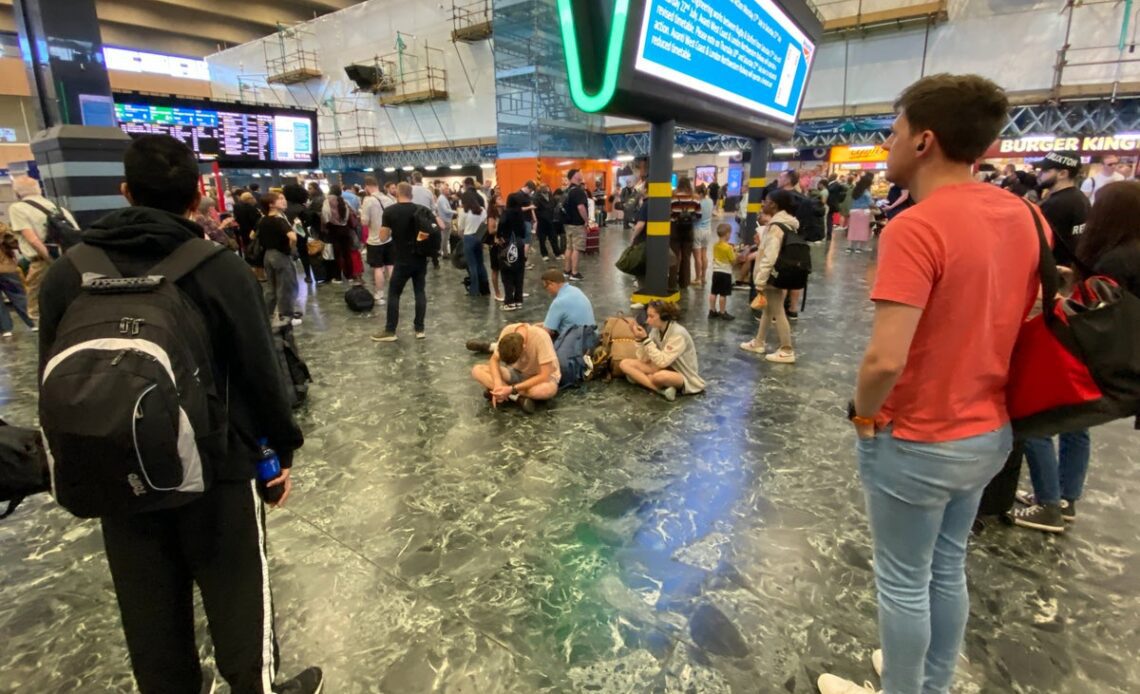As millions of travellers prepare for the biggest summer getaway since 2019, the transport network looks increasingly precarious.
Across England, thousands of trains have been cancelled as the latest round of national rail strikes begins. Up to 20,000 members of the RMT union working for 14 train operators in England have walked out in the long and bitter dispute over pay, jobs and working conditions.
Many airport rail services have been cancelled, leaving hundreds of thousands of airline passengers potentially facing expensive and stressful taxi journeys.
While most carriers have been operating normally, nearly 200 Tui passengers in Ibiza endured a 24-hour delay after a technical problem was exacerbated by customs delays.
Britain’s biggest budget airline, easyJet, blamed “unprecedented ATC [air-traffic control] disruption” for the large number of cancellations it has made so far this summer – while air fares for immediate departures soar.
Travellers to France by ferry from Dover are warned of border delays of up to 2.5 hours on Saturday morning, when a surge of departing families encounter tougher border checks as a consequence of Brexit.
Motoring organisations are warning of congestion on key motorways as the school holidays in England and Wales begin.
Here’s everything you need to know about transport as the great summer getaway begins.
Rail travel
More than half the trains across England are cancelled due to the resumption of national rail strikes. Large parts of the country have no trains at all, while many trains running on key intercity and commuter lines are overcrowded.
South Western Railway, which runs to and from the UK’s busiest station, London Waterloo, is telling passengers: “Customers are advised to only travel if absolutely necessary.” It warns that services on Friday morning will begin later than normal as a result of the Thursday strike.
The Rail Delivery Group (RDG), representing train operators, says: “In some areas only around half of train services will run, while others will have no services at all.” Few trains will run after 7pm.
Talks between the rail firms and the union have been deadlocked since April, when the RMT rejected a pay offer worth at least 4 per cent in each of 2022 and 2023 – subject to reforms in working practices. The deal was not put to members.
Since then, the train operators…
Click Here to Read the Full Original Article at The Independent Travel…
